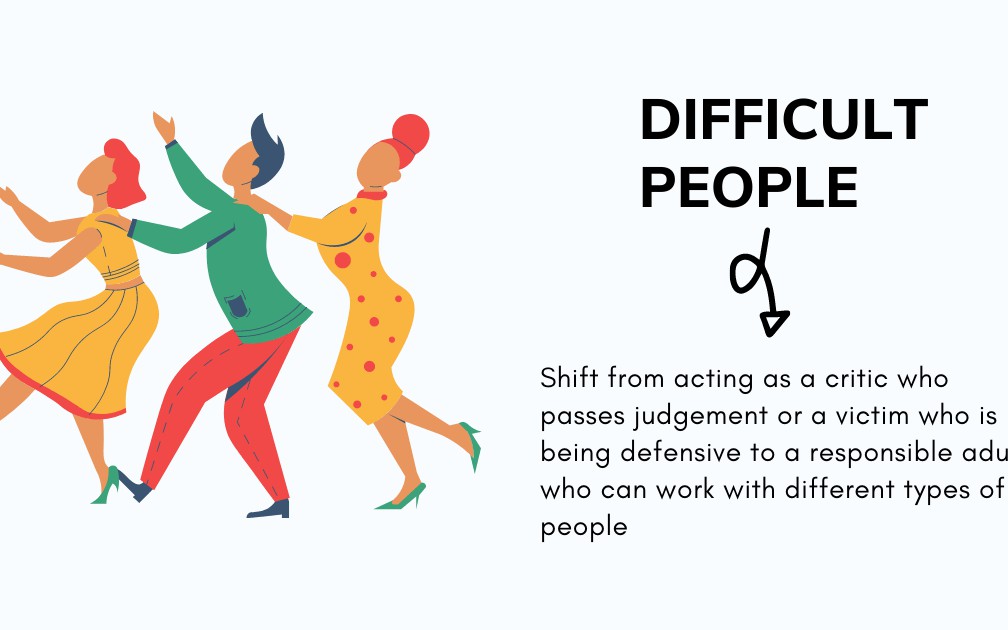Humans are social creatures who seek personal validation based on how others interact with them. We feel good and important when others share our belief system and dejected when there’s a conflict of opinions.
It’s then natural to want to work with people who are just like us, our clones.
So, every once in a while when we come across people who do not value our inputs, crush our ideas, ignore what we have to say, act as a know-it-all, seem to find pleasure in criticism, satisfaction in creating chaos and look for the negative side of things, it upsets us.
These so-called difficult people push our buttons by acting in undesirable ways. Their behavior gives us permission to pass judgement and offload responsibility by blaming them. After all, they are at fault.
Epictetus, a Greek stoic philosopher once said, “Men are disturbed not by things, but by the view which they take of them.”
While difficult people are a reality of life and everything we feel about them may be true, is it really in our best interest to navigate our lives by blaming them, holding them responsible for not reaching our goals and pretending that we didn’t succeed because of some mean co-workers.
Is there a better way of working with difficult people? Can we shift from acting as a critic who passes judgement or a victim who is being defensive to a responsible adult who can work with different types of people?
Before jumping to strategies, let us learn how we think, act and behave around difficult people. Without understanding our own mindset, any strategy we try to put to practice will be superficial. It will not address our underlying emotions, the most critical aspect to deal with while working with people we find difficult and challenging.
From The 7 Habits of Highly Effective People by Stephen R. Covey -
To try to change outward attitudes and behaviors does very little good in the long run if we fail to examine the basic paradigms from which those attitudes and behaviors flow. As clearly and objectively as we think we see things, we begin to realize that others see them differently from their own apparently equally clear and objective point of view. “Where we stand depends on where we sit”
#management #learning #self improvement #responsibility #machine-learning
